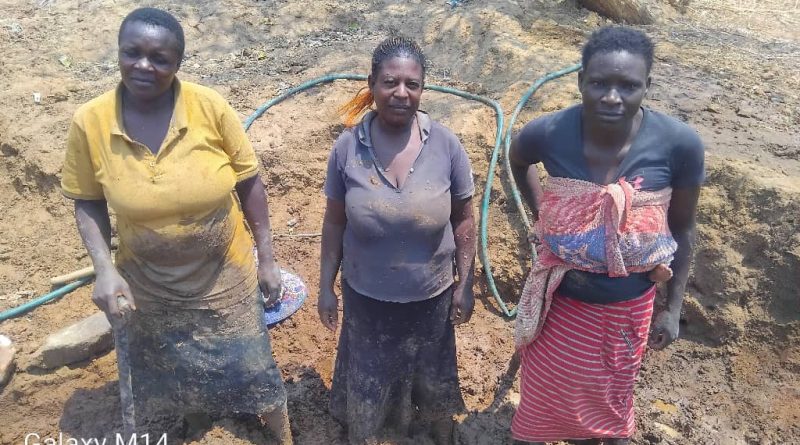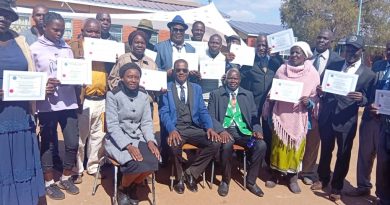Three Brave Women and a Thousand Silent Struggles: A Glimpse of Resilience in Madziva-Shamva District
By Chiyedzo Josiah Dimbo Ambassador of Hope
Madziva, Shamva District — Nestled in the heart of Mashonaland Central Province, Nyarukunda High School is more than just a learning institution — it is a mirror reflecting the social and economic realities of its surrounding community. And during my recent visit to this rural school, I encountered a story not often told in headlines or televised reports: the story of three brave women, molding bricks under the searing Zimbabwean sun, all in a determined effort to pay school fees for their children.
Their names are Rangarirai Katsamba, Caroline Mutata, and Anita Savanhu — women of quiet courage and daily sacrifice. All from Ward 6 of the Madziva-Shamva District, they represent thousands of Zimbabwean mothers who carry the weight of household survival with dignity, grit, and relentless hope.
“I used to run a tuckshop,” said Rangarirai Katsamba, a mother of five. “But it’s now history. The business collapsed under the burden of family needs, debts, and lack of capital. So I decided to do what I could — I joined others to mold bricks for Nyarukunda High School, hoping the income would help cover school fees.”
Rangarirai’s story is not unique, but her resilience is remarkable. With her husband’s income barely enough to cover essentials, she decided not to wait for help — but to work, sweat, and strive with her own hands.
Her voice was echoed by Caroline Mutata, a mother of four, who once ran a thriving grocery store in the same community.
“Everything is possible,” she told me with conviction. “I am ready to start over. If I can get support to restock, I know I can stand on my feet again and take care of my children without sacrificing their education.”
Then there is Anita Savanhu, affectionately known as Amai Savanhu — a spirited woman who used to travel between growth points buying and selling foodstuffs and children’s toys.
“Business was good once,” she said, “but the economy wore us down. Now I want to restart for the sake of my children’s future.”
These women are not asking for charity. They are seeking opportunity. Their stories highlight the urgent need for sustainable income-generating projects for women in rural communities, many of whom are forced to choose between food and school fees, between dreams and survival.
As Ambassador of Hope and a lifelong advocate for community empowerment, I believe the stories of Rangarirai, Caroline, and Anita are not isolated — they are emblematic of a larger structural problem: the feminization of poverty in rural Zimbabwe.
When women are economically disempowered, the ripple effects are profound — affecting children’s education, nutrition, health, and social development. But when women are empowered, entire communities rise with them.
That is why the Nyarukunda High School & Community Development Initiative — which we are currently spearheading through SAMACET — seeks to provide seed capital for small women-led enterprises, introduce school-based agro-projects, and establish a solar-powered greenhouse to support school nutrition and reduce school fees.
These women — and the countless others they represent — are not asking for pity. They are asking for a partnership. For investment in their potential. For a chance to live, work, and raise their children with dignity.
As I left Nyarukunda that day, I carried with me the sound of children laughing in the background and the image of three mothers with clay-covered hands and hearts full of hope. Women who know the meaning of resilience — and who remind us all that the true spirit of Africa is found not in the halls of power but in the hands of its women.
And if we, as a society, fail to act on their behalf — then we are all the poorer for it.
TOP PIC: Rangarirai Katsamba in yellow, Anita Savanhu with a baby and Caroline Mutata




